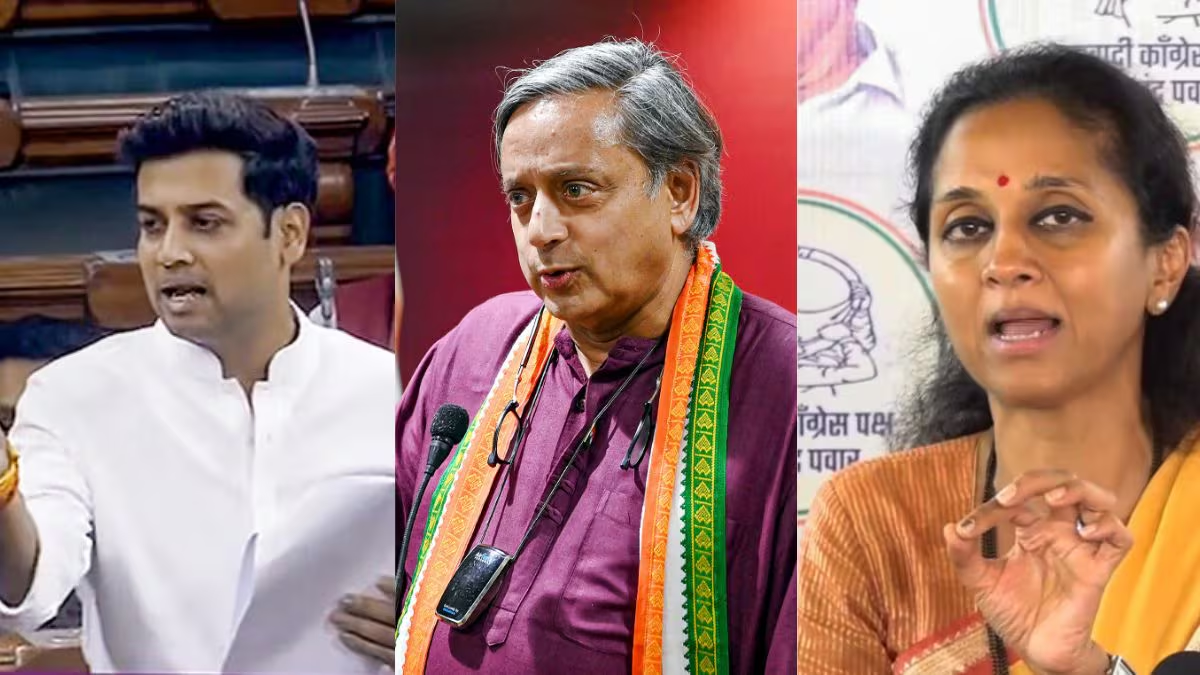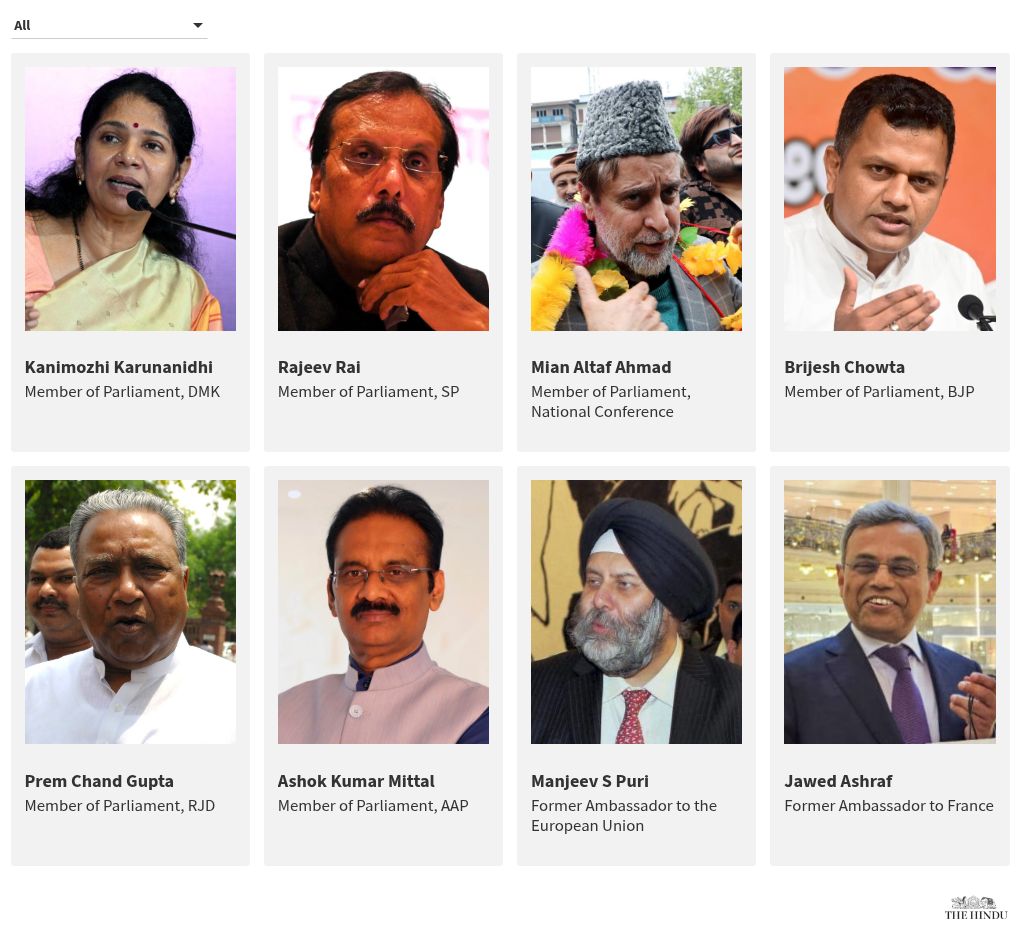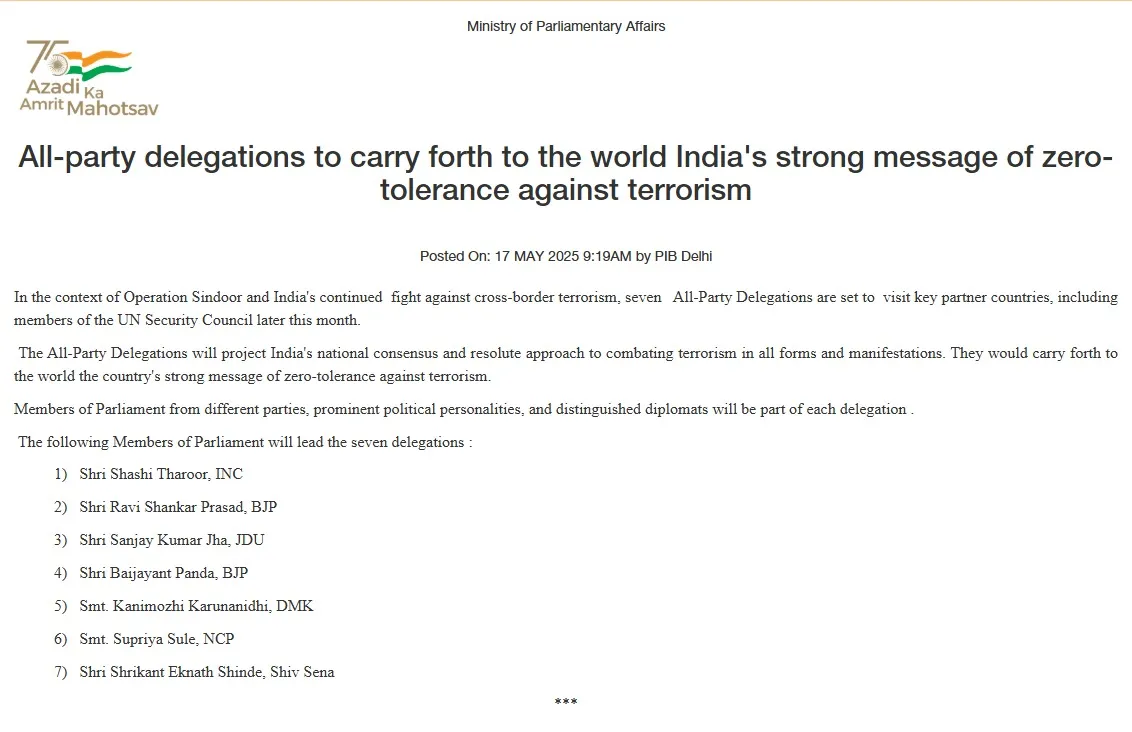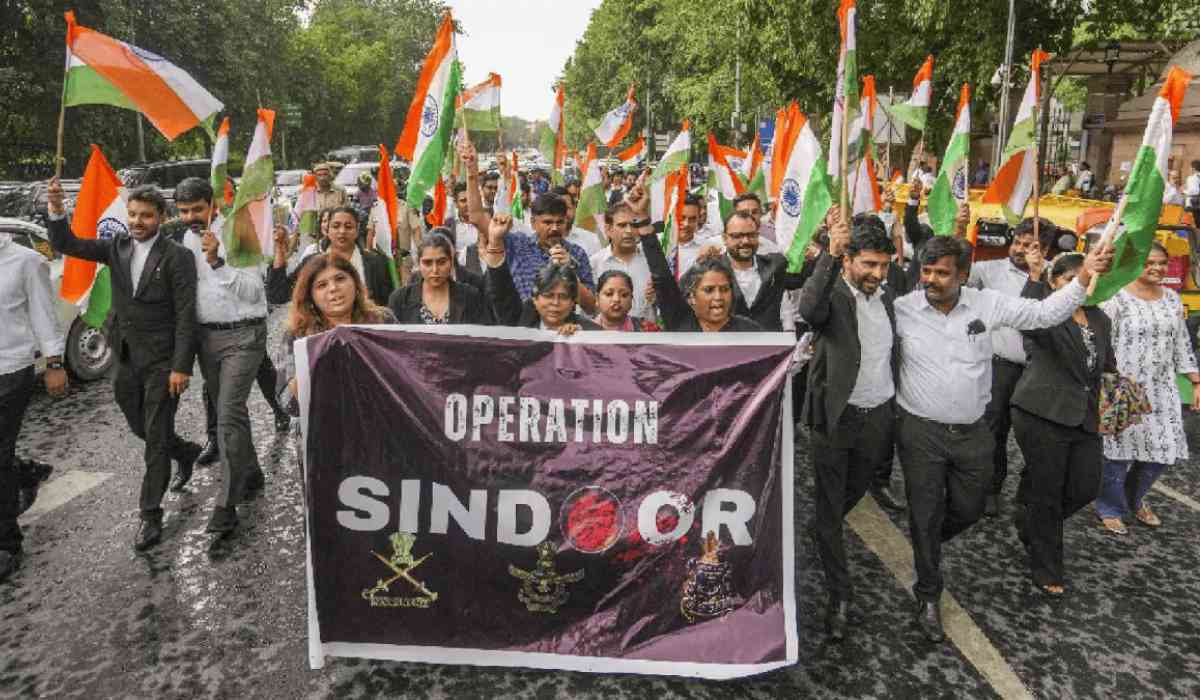In a strong and coordinated diplomatic offensive, India has launched a multi-nation outreach initiative aimed at highlighting Pakistan’s continued sponsorship of terrorism. This campaign follows the deadly Pahalgam terror attack and India’s subsequent retaliatory strikes under Operation Sindoor. The outreach also revisits the Indus Waters Treaty (IWT)—a historic water-sharing agreement between India and Pakistan—under a new strategic lens.

A Calibrated Step, Not a Knee-Jerk Reaction
During a high-level briefing, Indian officials emphasized that any decision regarding the Indus Waters Treaty is not reactionary but rather a calibrated strategic move. Foreign Secretary Vikram Misri and other senior diplomats informed delegations that the treaty is being revisited not just because of recent terror events but due to larger, evolving geopolitical and environmental factors.
Key points from the briefing:
-
The treaty, signed in the 1960s, does not reflect the current realities of climate change and water scarcity.
-
For the past two and a half years, India has been exploring avenues to rework the treaty.
-
The trust and mutual cooperation that formed the basis of the original agreement no longer exist.
Multi-Party Unity: A Show of Democratic Strength
India’s diplomatic initiative is noteworthy not just for its scope but for its inclusive representation. The outreach teams include leaders and members from both the ruling BJP-led NDA and opposition parties, showcasing India’s democratic unity on matters of national security.
Key Delegation Leaders
-
Sanjay Jha (JDU)
-
Kanimozhi Karunanidhi (DMK)
-
Shrikant Shinde (Shiv Sena)
These leaders are heading the first wave of delegations, with others set to follow. Their mission is to present evidence, narrate India’s story, and underline Pakistan’s role in harboring terrorists.

Delegation Diplomacy: Over 30 Countries Targeted
The scale of India’s outreach is unprecedented. More than 50 Indian leaders will travel to 32 countries and the European Union headquarters in Brussels. These delegations aim to:
-
Highlight the truth behind Operation Sindoor, India’s retaliatory strikes against terror targets in Pakistan and Pakistan-Occupied Kashmir.
-
Share documented evidence of Pakistan’s long-standing role in sponsoring terrorism.
-
Promote India’s “new normal”—a proactive policy of hitting back against cross-border terror threats.
Specific Countries on the Radar
The delegation led by Shrikant Shinde will visit:
-
UAE
-
Congo
-
Sierra Leone
-
Liberia
Accompanying members include:
-
BJP MPs Bansuri Swaraj, Manan Kumar Mishra, and SS Ahluwalia
-
BJD MP Sasmit Patra
-
IUML MP ET Mohammed Basheer
-
Former Ambassador Sujan Chinoy
Revisiting the Indus Waters Treaty
India's reassessment of the Indus Waters Treaty is not merely symbolic. It is grounded in both strategic and environmental rationale:
-
Climate change has drastically altered river water availability.
-
Depleting water levels and growing domestic needs necessitate a fresh evaluation.
-
Absence of trust and growing animosity with Pakistan undermines the spirit of the treaty.
Officials stressed that India was already considering modifications to the treaty well before the latest escalation. The Pahalgam attack and Pakistan’s denial of responsibility have only strengthened India’s case for reevaluation.

Pakistan’s Countermove: A Peace Delegation
In a reactive move, Pakistan has sent its own delegation, headed by former Foreign Minister Bilawal Bhutto Zardari, to counter India’s narrative. Dubbed a “peace delegation,” their mission is to “underscore our sincere efforts for peace and stability in the region,” according to the Pakistan Prime Minister’s office.
However, Indian officials remain unfazed. They highlighted during the briefings that:
-
Pakistan’s claims lack credibility, as its links to terrorism are well-documented.
-
The international community is more inclined to listen to India, given its global reputation and responsible diplomatic conduct over the last decade.
India's Historical Evidence Against Pakistan
India’s stance is backed by decades of documented evidence. During the briefings, delegates were reminded that:
-
India has provided concrete proof of Pakistan’s involvement in terrorism since at least 2008.
-
Evidence has included DNA profiles, call records, and interrogation reports—often met with limited or no cooperation from Pakistan.
This historical context further validates India’s current approach and reinforces its international case for zero-tolerance toward terrorism.
The “New Normal” in India’s Pakistan Policy
A significant theme during the briefings was India’s adoption of a “new normal” in dealing with Pakistan:
-
No tolerance for terror—irrespective of whether attacks are direct or via proxy groups.
-
Swift, targeted responses to any attack on Indian soil.
-
An intent to build international consensus rather than rely solely on bilateral negotiations.
This marks a paradigm shift in India’s foreign policy, where assertiveness replaces ambiguity.
A Unified India on a Global Mission
India’s post-Pahalgam outreach represents a rare show of political unity, backed by strategic foresight and diplomatic agility. With Operation Sindoor as a pivot, India is not just defending its borders but also reshaping the global narrative around cross-border terrorism and international treaties.
From revisiting the Indus Waters Treaty to presenting an irrefutable dossier on Pakistan’s terror links, India is making its position clear: Peace is a priority, but not at the cost of national security.
As over 50 Indian leaders fan out across the globe, one message echoes loud and clear—India will not be a silent spectator anymore.
With inputs from agencies
Image Source: Multiple agencies
© Copyright 2025. All Rights Reserved Powered by Vygr Media.






















